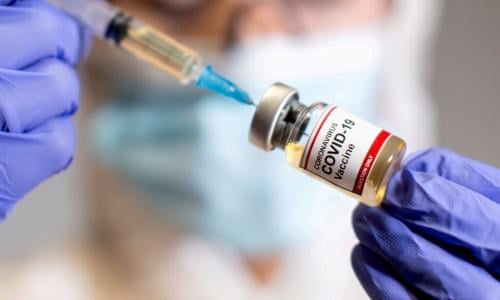Imams across UK to reassure worshippers about COVID-19 vaccines
Imams in mosques across the UK will deliver sermons at today’s prayers seeking to reassure worshippers about the safety and legitimacy of COVID-19 vaccinations and reminding them of the Islamic injunction to save lives. The coordinated move comes amid some scepticism and anxiety within Muslim communities about the vaccines, and concern about slow take-up in […]

Imams in mosques across the UK will deliver sermons at today’s prayers seeking to reassure worshippers about the safety and legitimacy of COVID-19 vaccinations and reminding them of the Islamic injunction to save lives.
The coordinated move comes amid some scepticism and anxiety within Muslim communities about the vaccines, and concern about slow take-up in some parts of the country.
- Why I am into animated comedy – Maiduguri’s upcoming artiste
- 2023 Presidency: Speaker seeks support for youngest governor in Nigeria, Yahaya Bello
Imams will say that the vaccines are halal – permissible in Islam – and there should be no hesitation in taking them. They will urge worshippers to dismiss rumours, myths and “fake news” about the jabs and say: “It is our ethical duty to protect ourselves and others from harm.”
The initiative comes from the Mosques and Imams National Advisory Board (Minab) and the message will be delivered via more than 100 mosques, some of which are operating online because of the risk of infection.
“Scepticism is driven by two things,” said Qari Asim, the chair of Minab and an imam in Leeds. “First, there are legitimate questions about whether the vaccines are halal, which we have looked into and both vaccines in use in the UK are perfectly permissible.”
Myths include suggestions that people could be “tagged” during the vaccination process. In an article on Imams Online, Asim points out that “there is already an unprecedented amount of scrutiny and intrusion into our private lives with our phones, CCTV, GPS, and other technological advancements.
“Vaccination is not linked to surveillance or any other form of information-gathering,” he said.
Minab has partnered with the British Islamic Medical Association (BIMA) in its campaign to convince Muslims of the safety and legitimacy of the vaccines, and is hosting a series of webinars to answer people’s questions.
The Muslim Council of Britain has also circulated BIMA’s position statement on the Pfizer/BioNTech and Oxford/AstraZeneca vaccines, which states they contain no animal products or human embryo cells.
Muslim religious and community leaders are concerned about hostility if there is poor take-up of the vaccines. “We do not want to fan the flames of Islamophobia and give rise to scapegoating communities,” wrote Asim (UK Guardian)
